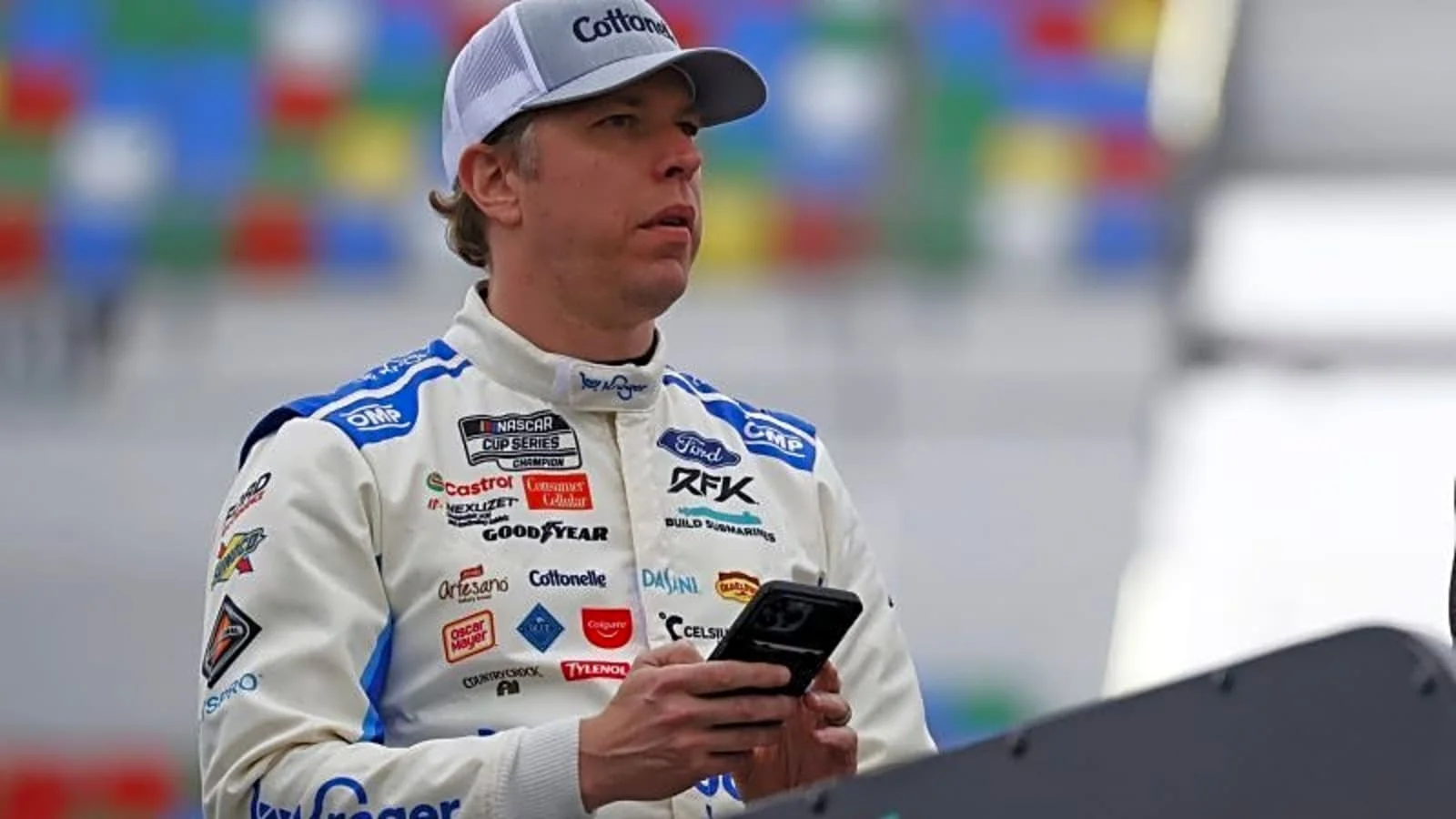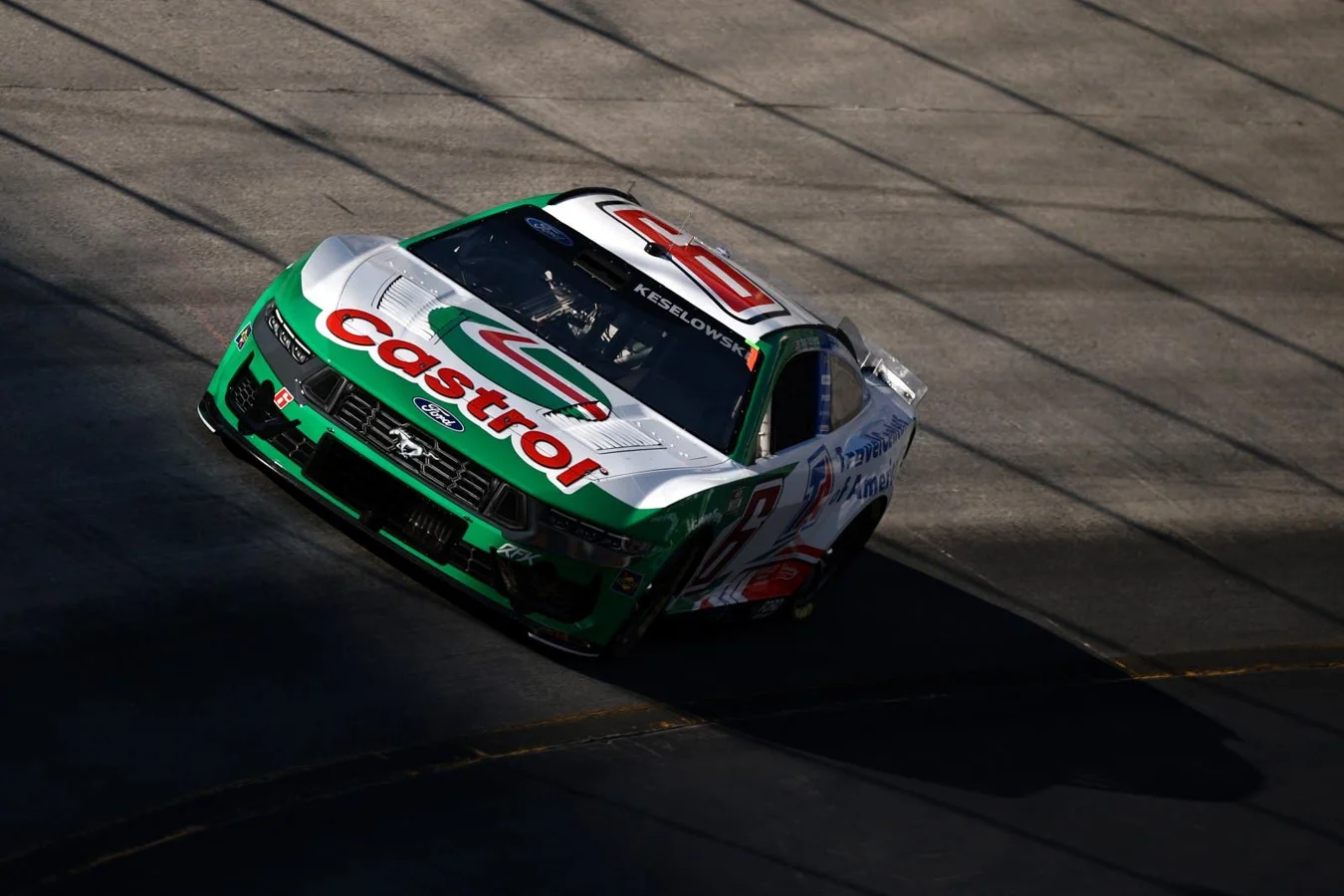Brad Keselowski, a prominent figure in the sport, has highlighted a significant vulnerability in the Brad Keselowski NASCAR business model, warning that the industry’s heavy dependence on television revenue could jeopardize its stability. Speaking on the Stacking Pennies podcast, Keselowski emphasized that this financial approach affects not only tracks and teams but also impacts fans and the future dynamics of the sport.
Keselowski Raises Alarm Over NASCAR’s Revenue Strategy
The topic gained attention after Steven Taranto shared a podcast clip on X, noting that Keselowski’s analysis reached beyond the commonplace debates on horsepower or rule changes. Instead, the comments zeroed in on the core financial structure of NASCAR. Keselowski explained that the majority of race tracks cannot sustain themselves without the influx from broadcaster deals. He stated:
“The tracks aren’t able to generate revenue on their own, they’re wholly reliant on the TV money… They’re comfortable with that which is the scariest part of all.”
— Brad Keselowski, Driver/Team Co-owner
This perspective underscores the inherent risk: contentment with the status quo could halt innovation and leave the sport exposed if television revenues falter.
How NASCAR’s Revenue Sources Stack Up
NASCAR draws its income from several channels, including sponsorship agreements, broadcasting contracts, ticket sales, licensing deals, and merchandise. Sponsorship remains a cornerstone, with major companies such as Coca-Cola, Goodyear, Xfinity, toyota/”>Toyota, and chevrolet/”>Chevrolet fueling the sport by aligning their brands with races and teams. These partnerships are vital for team funding and event promotion.

Nevertheless, broadcasting agreements represent NASCAR’s most lucrative segment. The latest deal, which took effect in 2025, brings in $1.1 billion annually through 2031 and involves media partners like Fox, NBC, Warner Bros Discovery, Amazon Prime, and TNT. The magnitude of this arrangement becomes clear when considering it marks a 40 percent increase from the previous contract.
While this underscores the value TV deals bring to the sport and its stakeholders—including drivers, race teams, and media partners—it also reinforces Keselowski’s core concern. As so much of the NASCAR business model hinges on consistent or growing television money, the system becomes increasingly susceptible to market changes or shifts in viewing habits.
RFK Racing’s Charter Confirmation Brings Stability
Amid his warnings about the broader state of the sport, Brad Keselowski’s own team, RFK Racing, achieved a resolution that sets its 2025 trajectory. The No. 60 car will remain active in the Cup Series next season, cemented by a charter arrangement with Rick Ware Racing. This decision comes after a season complicated by a legal dispute between Rick Ware Racing and Legacy Motor Club regarding charter rights. RFK Racing’s spokesperson shared:
“We can confirm driver and partner agreements are in place for the 60 team. We are happy to continue our charter agreement as Rick Ware Racing and Legacy Motorsports have indicated that contracts will be honored.”
— RFK Racing spokesperson
This agreement guarantees RFK Racing’s status as a three-car team, securing roles for key drivers such as Ryan Preece and ensuring stability with sponsors. For both the organization’s athletes and its business partners, the move promises much-needed clarity after a difficult season, where all three drivers—including Chris Buescher and Ryan Preece—fell short of the playoffs but demonstrated competitiveness.
Looking Ahead: Risks and Potential for Change
The issues raised by Brad Keselowski highlight why ongoing reliance on broadcasting contracts could shape decisions made by teams, sponsors, and event organizers. As noted by media observers like Steven Taranto and highlighted in racing circles, shifts in how people access sports—via digital platforms or changing viewing habits—could challenge the sport’s financial foundation. Media partners such as Fox, NBC, Amazon Prime, and others remain integral, but the imperative to diversify revenue and foster innovation persists for every stakeholder, including Brad Keselowski, RFK Racing, and NASCAR itself.
As the business of motorsports continues to evolve, the warning delivered by Keselowski serves as both a call to action and a reminder of the need for adaptability. The upcoming seasons, shaped by large-scale media deals, legal negotiations such as RFK Racing’s charter with Rick Ware Racing, and the ongoing pursuit of new fan engagement strategies, will reveal whether the sport’s leadership can rise to meet the challenge and secure lasting prosperity for all those involved.
Clipped this from @keselowski 's appearance on Stacking Pennies because I thought it was interesting: He says the biggest problem with NASCAR currently is the business model with the tracks, which are wholly reliant on TV money because they can't generate enough revenue on their… pic.twitter.com/itQS1Xx848
— Steven Taranto (@STaranto92) September 25, 2025
